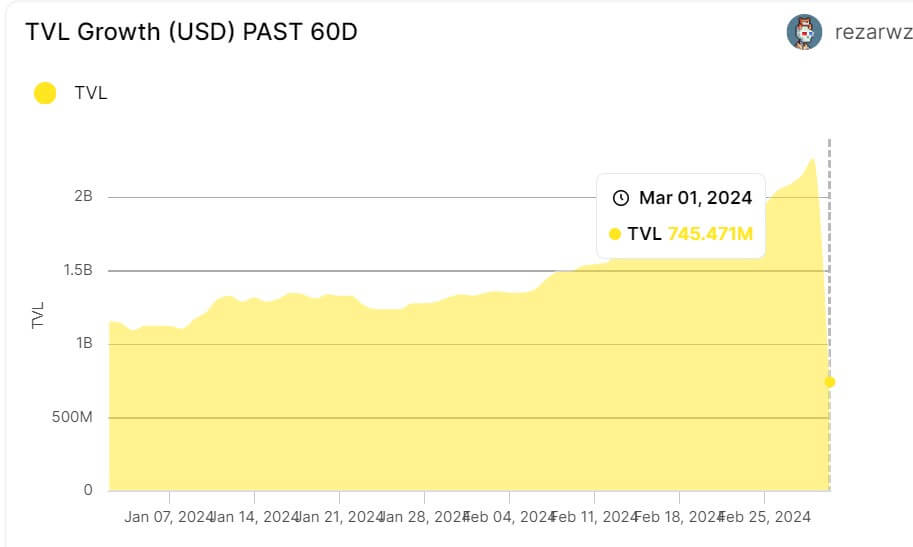Blast network TVL plummets 65% losing $2 billion in 24 hours post-mainnet launch
Crypto investors have swiftly removed their assets on the Ethereum-based layer two blockchain Blast following its Feb. 29 mainnet launch.
According to DefiLama and Flipside data, the total value of assets locked (TVL) on the network plummeted by over 65% in the past day, dropping to $745.47 million from a peak of $2.27 billion.

Last year, Blast enticed community members to lock up their Ethereum and stablecoin assets, offering up to a 5% annual percentage yield generated from staked ETH and real-world asset protocols.
The allure of high yields and potential airdrops incentivized community members to participate. However, this move drew criticism from crypto stakeholders, who pointed out that users couldn’t withdraw their assets until the mainnet launch.
With the successful mainnet launch, users have quickly withdrawn their stuck assets, leading to the rapid decline in TVL.
Despite this setback, Blast continues its operations, boasting over 1 million total transactions on the network and witnessing the launch of several new decentralized applications.
Phishing sites on rampage
Meanwhile, malicious actors have exploited Blast mainnet launch to proliferate phishing sites mimicking the layer2 network’s official platform.
Web 3 security firm Scam Sniffer disclosed two instances where individuals fell victim to these schemes, resulting in a combined loss exceeding $5 million in digital assets.
In one case, a user suffered a loss of $4.39 million, comprising $ALI and $PUSH tokens, after interacting with a fraudulent Uniswap Permit2’s Permit Batch message.
Another user encountered a similar fate, losing $717,817 worth of Aave BTC and Pandora tokens through an airdrop phishing site.
These incidents prompted Scam Sniffer to issue a stark warning:
“There are too many phishing sites impersonating Blast! It’s time to remind you once again that clicking on links in Twitter comments is dangerous.”
Blast also echoed this sentiment, urging its community to exercise vigilance against scammers and exclusively rely on official documentation for accessing block explorers, RPCs, and other chain-related information.